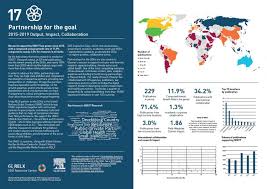The 17 Sustainable Development Goals: A Blueprint for a Better Future
In 2015, world leaders came together to adopt the 17 Sustainable Development Goals (SDGs) as part of the United Nations’ 2030 Agenda for Sustainable Development. These goals serve as a universal call to action to end poverty, protect the planet, and ensure prosperity for all. Each goal addresses key challenges facing humanity and provides a roadmap for creating a more sustainable and equitable world.
Goal 1: No Poverty
The first goal aims to eradicate extreme poverty and ensure equal access to resources and opportunities for all individuals.
Goal 7: Affordable and Clean Energy
This goal focuses on promoting renewable energy sources and increasing energy efficiency to combat climate change.
Goal 13: Climate Action
Goal 13 calls for urgent action to combat climate change and its impacts by implementing mitigation and adaptation strategies.
Goal 16: Peace, Justice, and Strong Institutions
This goal seeks to promote peaceful and inclusive societies, provide access to justice for all, and build effective, accountable, and transparent institutions at all levels.
By working towards these goals collectively, we can create a more sustainable future for generations to come. It is crucial that individuals, communities, governments, and organisations collaborate to achieve these targets and leave behind a world that is resilient, inclusive, and environmentally conscious.
Understanding and Engaging with the 17 Sustainable Development Goals: Key Questions Answered
- What are the 17 Sustainable Development Goals?
- How were the 17 Sustainable Development Goals established?
- Why are the 17 Sustainable Development Goals important?
- What is the progress on achieving the 17 Sustainable Development Goals?
- How can individuals contribute to achieving the 17 Sustainable Development Goals?
What are the 17 Sustainable Development Goals?
The 17 Sustainable Development Goals, also known as the SDGs, are a set of global objectives established by the United Nations in 2015 to address pressing challenges facing humanity. These goals encompass a wide range of social, economic, and environmental issues aimed at promoting sustainability and improving the well-being of people worldwide. From eradicating poverty and hunger to ensuring access to quality education and clean water, each goal outlines specific targets that, when achieved collectively, can lead to a more equitable and prosperous future for all. The SDGs serve as a framework for guiding policies, initiatives, and actions towards creating a more sustainable and inclusive world for present and future generations.
How were the 17 Sustainable Development Goals established?
The 17 Sustainable Development Goals were established in 2015 by world leaders as part of the United Nations’ 2030 Agenda for Sustainable Development. The goals were developed through a consultative process involving governments, civil society, and various stakeholders to address pressing global challenges such as poverty, inequality, climate change, and environmental degradation. With input from experts and representatives from around the world, the SDGs were crafted to provide a comprehensive framework for achieving a more sustainable and equitable future for all.
Why are the 17 Sustainable Development Goals important?
The 17 Sustainable Development Goals are crucial as they provide a comprehensive framework for addressing pressing global challenges such as poverty, inequality, climate change, and environmental degradation. By setting specific targets and indicators, these goals guide governments, organisations, and individuals in taking concrete actions to promote economic growth, social inclusion, and environmental sustainability. Achieving the SDGs is essential for building a more equitable and prosperous world where all people can thrive while safeguarding the planet for future generations. Embracing the SDGs means committing to a collective effort towards creating a better future for everyone.
What is the progress on achieving the 17 Sustainable Development Goals?
The progress towards achieving the 17 Sustainable Development Goals varies across regions and sectors, with some goals showing significant advancements while others face challenges. Global efforts have led to improvements in areas such as poverty reduction, access to education, and renewable energy adoption. However, disparities persist, especially in addressing climate change, reducing inequality, and promoting sustainable consumption and production. Continuous monitoring, accountability, and collaboration among governments, businesses, civil society, and individuals are essential to accelerate progress and ensure that the goals are met by the target year of 2030.
How can individuals contribute to achieving the 17 Sustainable Development Goals?
Individuals play a crucial role in contributing to the achievement of the 17 Sustainable Development Goals. By making simple yet impactful changes in their daily lives, individuals can support these global objectives. This includes adopting sustainable consumption habits, reducing waste, conserving energy and water, supporting ethical businesses, volunteering for community projects, advocating for social justice and environmental protection, and staying informed about local and global sustainability issues. Small actions taken by individuals collectively have the power to make a significant difference towards building a more sustainable and equitable world for present and future generations.

